Deadline: June 14, 2024
Applications are open for the WFP Niger Innovation Challenge 2024: Energy for Food Security. Energy acts as a catalyst for socio-economic transformations, influencing all dimensions of sustainable development. Access to energy is a cornerstone in achieving food security and eliminating hunger. Not only is energy essential for food consumption—much of the food distributed by the World Food Programme (WFP) requires cooking—but it also plays a vital role throughout food systems in production, processing and preservation.
In Niger, communities face significant challenges of food insecurity and vulnerability due to climatic risks like droughts, floods and rising temperatures, coupled with environmental degradation and water scarcity. Heightened insecurity and the spillage of conflicts from neighboring countries into Niger exacerbate these issues, leading to forced displacements. A total of 3.3 million people are acutely food insecure.
To address these challenges, WFP Niger in collaboration with the WFP Innovation Accelerator is launching a call for applications for innovative solutions supporting the Energy for Food Security programme. This initiative aims to identify and scale cost-effective and sustainable energy solutions for cooking and agricultural practices across crisis-affected and stable regions of Niger.
They invite global and regional innovators, entrepreneurs and organizations to contribute impactful and fit-for-purpose solutions that can enhance energy access in vulnerable areas, fostering improved livelihoods and resilience. The WFP Innovation Accelerator and WFP Niger will provide comprehensive support to selected teams, facilitating the development and scaling of promising solutions. Their focus is on nurturing innovations that are not only novel but also sustainable and scalable, capable of bringing long-term change within challenging environments.
Themes
The three innovation thematic areas are listed below:
- Energizing Homes in Displacement Settings: They are looking for clean cooking solutions for households in rural areas, capable of powering electricity for cooking three meals a day, and household lighting systems that provide light inside the house during dark hours and surrounding areas.
- Energizing School Meals: They are looking for modern and efficient institutional cookstoves and energy systems that significantly reduce cooking time and improve air pollution within schools.
- Energizing Farmer Organizations: They are looking for solar-powered grain processing and preservation solutions that increase the production of primary processed products, including millet flour, millet couscous, cowpea flour and peanut oil.
Benefits
Each selected team:
- will have the opportunity to take part in the WFP sprint programme, a six-month acceleration programme combined with piloting, business training and mentoring;
- will receive up to US$250,000 conditional funding towards project implementation. The specific amount will be determined based on the maturity stage of the solution and the three thematic areas listed below.
- will receive ongoing operational support from WFP Niger during piloting;
- may qualify for further support and fundraising opportunities in the future.
Eligibility
- Your organization must be an established legal entity (for-profit, not-for-profit, social business, NGO, INGO).
- Your organization should have an existing operational presence or willingness to establish a presence in Niger, through a subsidiary, in-country office, distributors or partnerships in the country.
- Your innovation must address one or more of the priority innovation areas listed.
- Your innovation must be at least at the Minimum Viable Product (MVP) stage. Proof-of-concept and initial traction are preferred.
- Your innovation should have a plan to implement in Niger within a six-month timeframe with the available funding and a clear pathway to scale.
Evaluation Criteria
- Impact: The solution has the potential to impact the people WFP Niger serves therefore contributing to WFP’s mission of achieving zero hunger.
- Level of innovation: The idea is a new technology or approach to applying existing technology, process, or business model to address the problem statements.
- Feasibility/Traction: The applying team has evidence of its ability to make and implement the proposed solution and has an indication of demand from the targeted users/customers of its solution.
- Financial sustainability: The solution has a robust plan to ensure sustainable revenue generation beyond WFP funding.
- Team quality: Team members have relevant experience and are committed to the project.
- Context relevance: The solution addresses at least one of the priority areas, and is suitable to implement in the Niger context.
Application
For more information, see FAQ and visit WFP Niger.






